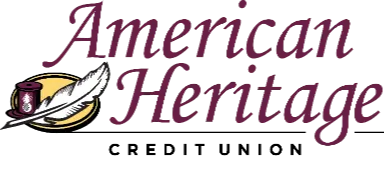Reduce Tax-Season Stress with a Little Preparation

If you’re new to filing taxes, the process can feel a little overwhelming. It may seem like there are too many details to remember and tons of jargon to decipher. But here’s the truth: If you take some time now to learn about the filing process, understand what information you will need, and have a clear plan for completing your tax returns well in advance of the April 15 deadline, it’s not so bad. You may even get to enjoy a nice refund.
Follow these tips to help you get your taxes done quickly, accurately, and confidently.
Organize Your Documents
To ensure your returns are free of mistakes, and that you don’t miss any potential deductions or credits, you will need tax records such as:
- W-2 forms from employers
- 1099 forms (if you’re an independent contractor)
- Other income documents (such as for interest or dividends from financial institutions)
- Previous years’ tax returns
- Notice 1444, issued by the IRS for recipients of the federal stimulus payments
Keep all of the records together in a secure location so you don’t lose track of anything.
Find the Best Way to File
There are numerous options for filing your taxes, but some may be more preferable to others this year due to challenges caused by the COVID-19 pandemic. For example, one way many people file is by mailing their completed tax returns to the IRS and their state. However, due to postal delays and staffing issues at the IRS, processing paper returns could take several weeks longer than usual this spring. Taxpayers who want a speedier turnaround – for example, those expecting a large refund check – are encouraged to file electronically.
Depending on your personal financial situation and how complex your tax returns are, you may be able to file your federal and state taxes online through a tax preparer for free or a minimal fee. Alternatively, you could file your returns electronically with help from a tax preparation company (for a fee).
American Heritage members can use their TurboTax® discount and save up to $15 on TurboTax federal products.
If you anticipate your taxes to be a bit more complicated, or if you just don’t feel comfortable attempting to do them yourself, you can always hire a tax professional to complete your filing in a socially distanced setting. If your situation has changed significantly in the last year – for example, if you got married or bought a house or added to your family – it may be worth the extra cost to use tax preparation services and work one-on-one with a tax expert to make sure your return is completed correctly.
Protect Your Information
In addition to storing your own tax documents in a safe place, you should practice extra caution when sharing copies and especially when sending them electronically to a tax professional to complete your filing. Ask your accountant or tax preparer where your personal data will be stored, who has access to it, and how they will share forms and information with you. You should avoid sending sensitive financial documents via email.
What You Should Know This Year
A lot changed in 2020, and that applies to tax rules and deductions too. The IRS website provides detailed information about what’s new for filing taxes in 2021, but here are some highlights you should know before you file:
- Last year’s federal stimulus checks do not count as earned income, so you will not owe taxes on these economic impact payments, which are considered a tax credit for 2020.
- If you’re self-employed, you can claim a home office deduction, but if you’re a regular employee who’s been working from home due to COVID-19, that is not allowed.
- If you received unemployment benefits in 2020, you will need to pay federal income taxes on that money (though some states, including Pennsylvania and New Jersey, don’t tax unemployment benefits).
- Eligible individuals and families with low to moderate income may be able to claim the Earned Income Tax Credit. Eligible taxpayers have the option to calculate their EITC based on their 2019 income if that was higher than their 2020 income.
- Most families can claim up to $2,000 per qualified child with the child tax credit.
- Thanks to last year’s Coronavirus Aid, Relief, and Economic Security (CARES) Act, people who itemize their deductions can deduct up to 100% of their adjusted gross income on qualified charitable donations. Additionally, a special provision allows tax filers who take the standard deduction – that is, do not itemize – to deduct up to $300 made in qualified cash donations to charity last year.
- If itemizing deductions, you can deduct the amount of your total medical expenses that is above 7.5% of your adjusted gross income.
Money-Saving Tips
Want to avoid overpaying on your taxes? Consider these tips.
1. Fund Your IRA
Making a tax-deductible contribution to a traditional IRA can help you lower your tax bill. Contributions you make to a traditional IRA may be fully or partially deductible, depending on your filing status and income. Currently, the annual contribution limits for traditional IRAs are $6,000 if you are under 50 and $7,000 if you are 50 or older.
2. Itemize Your Deductions
The standard deduction this year is $12,400 for individuals or $24,800 for married couples filing jointly. Depending on your personal situation, you may find savings if you itemize instead of taking the standard deduction. For example, you may be able to deduct mortgage interest, charitable donations, and medical expenses exceeding 7.5% of your adjusted gross income (be sure to check with a tax expert for any questions).
3. File and Pay on Time
Avoid late filing penalties by filing your return by the tax deadline, April 15, or by filing Form 4868 to get an extension until October 15 to avoid potential penalties for unpaid taxes.
Supporting Our Members in Tax Season & Beyond
As a member-owned financial institution, American Heritage Credit Union has been helping our members achieve their financial goals since 1948. Whether you want a convenient account where you can save your tax refund for a rainy day, or want to maximize your retirement savings and potential tax benefits with a federally insured IRA Certificate, we’re ready to help.

